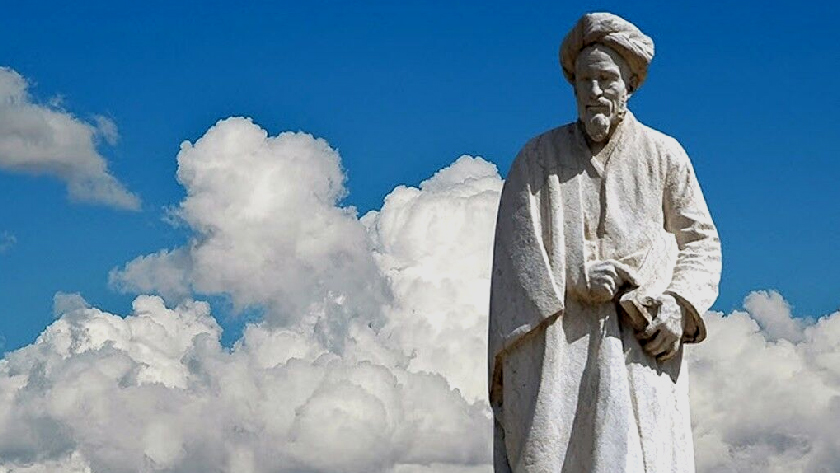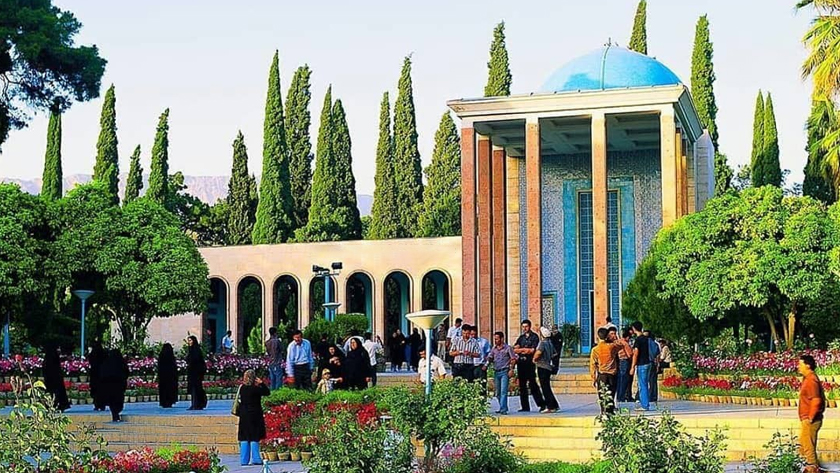Iran Press/ Iran News: April 21, based on authentic documents derived from the works of eminent 13th-century Persian poet Saadi Shirazi, is the birth anniversary of this great poet, an opportunity to recall the essence of human existence narrated in many of his works, and opens a new window to human life.
Shiraz-based Center for Studies on Saadi, since April 2002, announced April 21 as Saadi Day, and April 21, 2010, at the World Poets' Meeting in Shiraz, was named Saadi Day by the domestic and foreign cultural institutions.
Saadi's Day is an opportunity for culture lovers and thinkers to elaborate on the thoughts of the great Iranian poet and rethink the existential values of human beings which take shape as eloquence being seen in the works of Saadi.

Saadi of Shiraz (Saadi Shirazi) was a major Persian poet and prose writer of the medieval period. He is recognized for the quality of his writings and for the depth of his social and moral thoughts.
Saadi is widely recognized as one of the greatest poets of the classical literary tradition, earning him the nickname "The Master of Speech" or "The Wordsmith" or simply "Master" among Persian scholars. He has been quoted in the Western traditions as well.
Every year, in the special ceremonies held by cultural associations, the name of this prominent Iranian poet is marked.
The fact is that the mention of the words and freshness of Saadi's poetry, as well as the foresight and wisdom of the tales of this famous Iranian poet, is so transcendent that anyone, without any reason, is enchanted by.
The balanced spirit and moderation in Saadi Shirazi’s poetry has added to the sweetness of the words of this poet. Everyone in very first glances at Golestan and Bustan throws himself into the poetry of Saadi, and is satisfied by the words of the Master.
Therefore, commemorating Saadi Day is not merely a conference and formality, but of necessity. It is an inevitable necessity that flickers on the tired mind of today's citizen and invites him to himself. Although the reading of Saadi's poetry and words may lead to satisfaction and exhilaration.

He lost his father, Muslih al-Din, in early childhood; later he was sent to study in Baghdad at the renowned Nezamiyeh College, where he acquired the traditional learning of Islam. The unsettled conditions following the Mongol invasion of Persia led him to wander abroad through Anatolia, Syria, Egypt, and Iraq. He refers in his work to travels in India and Central Asia, but these cannot be confirmed. When he returned to his native Shiraz, he was middle-aged; he seems to have spent the rest of his life in Shiraz.
Saadi's best-known works are the Bustan (1257; The Orchard) and the Gulistan (1258; The Rose Garden). The Bustan is entirely in verse (epic metre) and consists of stories aptly illustrating the standard virtues recommended to Muslims (justice, liberality, modesty, contentment) as well as some other issues. The Gulistān is mainly in prose and contains stories and personal anecdotes. The text is interspersed with a variety of short poems, containing aphorisms, advice, and humorous reflections. The morals preached in the Gulistān border on expediency. Saadi demonstrates a profound awareness of the absurdity of human existence.
For Western students the Bustan and Gulistan have a special attraction; but Saadi is also remembered as a great panegyrist and lyricist and as the author of a number of masterly general odes portraying human experience and also of particular odes such as the lament on the fall of Baghdad after the Mongol invasion in 1258. His lyrics are to be found in Ghazaliyat (“Lyrics”) and his odes in Qasaid (“Odes”).
Six prose treatises on various subjects are attributed to Saadi; he is also known for a number of works in Arabic. The peculiar blend of human kindness and cynicism, humour, and resignation displayed in Saadi's works, together with a tendency to avoid the hard dilemma, make him, to many, the most widely admired writer in the world of Iranian culture.
224
Read More:
Commemoration day of Saadi Shirazi; famous Iranian poet and master of speech
Maryam Abolbagha

